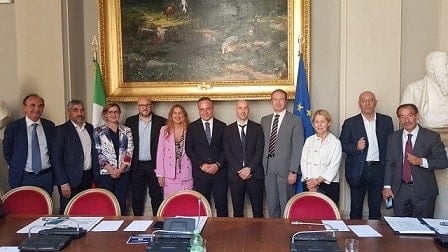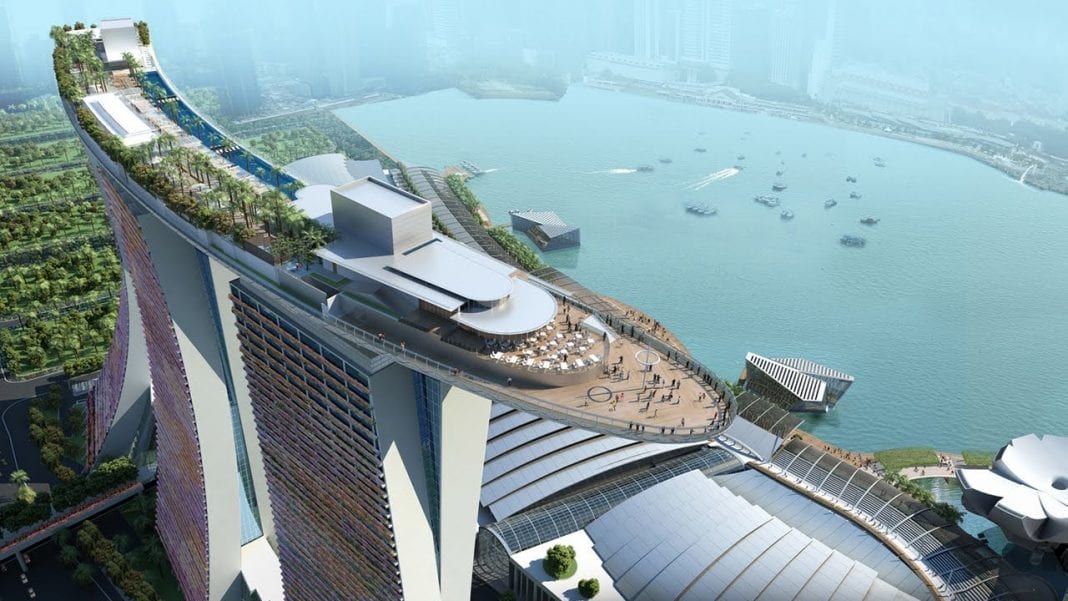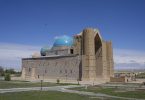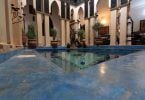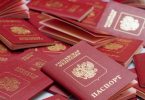The inauguration session of the bilateral friendship section between Italy and Albania, operating within the Inter-Parliamentary Union, was held at the Chamber of Deputies in Rome with the aim of carrying out “parliamentary diplomacy” activities to strengthen relations between the respective parliamentary institutions and to promote initiatives useful for the most effective and fruitful cooperation between the two friendly countries linked by strong economic, social, cultural, political, and growing tourism development ties.
The meeting was chaired by Arnaldo Lomuti, appointed President of the Section for this legislature, on behalf of the Italian Group of the Inter-Parliamentary Union.
Albania is a country historically connected to Italy as evidenced by the numerous Arbereshe (Albanian) communities spread throughout Italy which, since their distant settlement, have preserved and nurtured the culture, historical memory, traditions, and linguistic roots of Albania.
This long-standing bond is particularly felt in Basilicata, (region of central South Italy) where there are several municipalities of Albanian origin, ancient and still fertile custodians of this plurality and cultural richness.
The Italy-Albania section, which includes over 20 members of parliament representing all political forces, is a fundamental tool for building and strengthening bridges between the two peoples, fostering friendship and facilitating cooperation.
The work of the Italy-Albania Bilateral Section will, therefore, go in the direction of expanding and further developing collaboration relationships and programs.
Lomuti’s presidency in the bilateral section represents an opportunity to work on the development and revitalization of a network of relationships, of opportunities capable of increasing friendship and interests between the two countries.
Albania was Part of the Roman Empire
Albania is officially the Republic of Albania, and its coasts overlook the Adriatic Sea (the Strait of Otranto) and the Ionian Sea. The country, with its borders, has an area of 28,756 km² and a population of 3.024 million inhabitants.
In the classical age, Albania was part of the Roman Empire, becoming one of the cultural and religious centers of the Byzantine Empire in 1190. Subsequently invaded by barbarians (Slavs, Avars, Bulgars), it experienced the military penetration of the Kingdom of Sicily (with the sovereigns of the Altavilla, Swabian, and Aragonese dynasties) and the commercial penetration of the Republic of Venice.
In 1913, the Kingdom of Albania briefly became an Italian protectorate at the end of the First World War and was again occupied and annexed to the Kingdom of Italy in 1939.
During the Second World War, parts of the territories of the so-called ethnic Albania were incorporated, including only the northwestern territories and ethnic Albanian settlements left beyond the state borders.
Since 1998, Albania has been a parliamentary republic. It is a member of the United Nations, NATO, OSCE, the Council of Europe, the World Trade Organization, and a founding member of the Union for the Mediterranean.
Albania has been an official candidate for EU membership since June 24, 2014, having formally applied for EU membership on April 28, 2009. The EU held its first intergovernmental conference with Albania in July 2022.
Free-market reforms have opened the country to foreign investment, particularly in the development of energy and transport infrastructure.
It is among the emerging countries of Europe and, thanks to the numerous historical and natural beauties, among the new tourist destinations of the Balkan peninsula and the Mediterranean basin.
An article by Chris Leadbeater, Telegraph Travel correspondent, qualifies – Albania as the secret (and cheap) alternative to Greece and Italy.
More news about Italy

